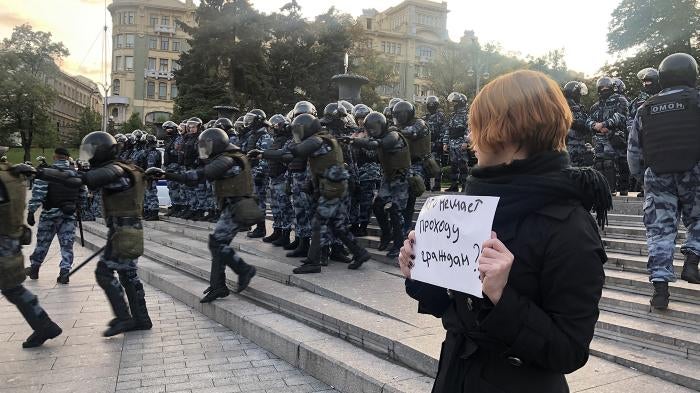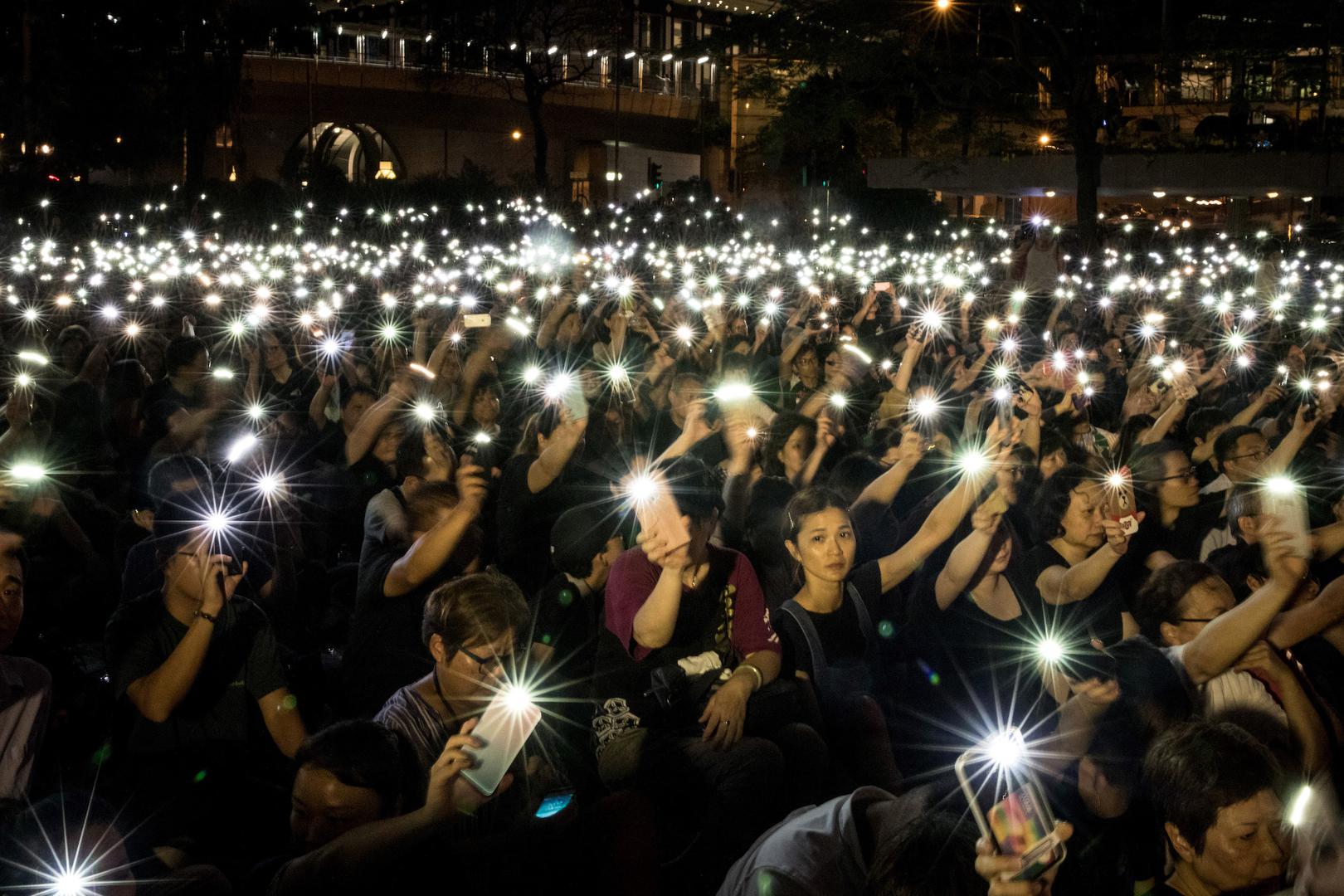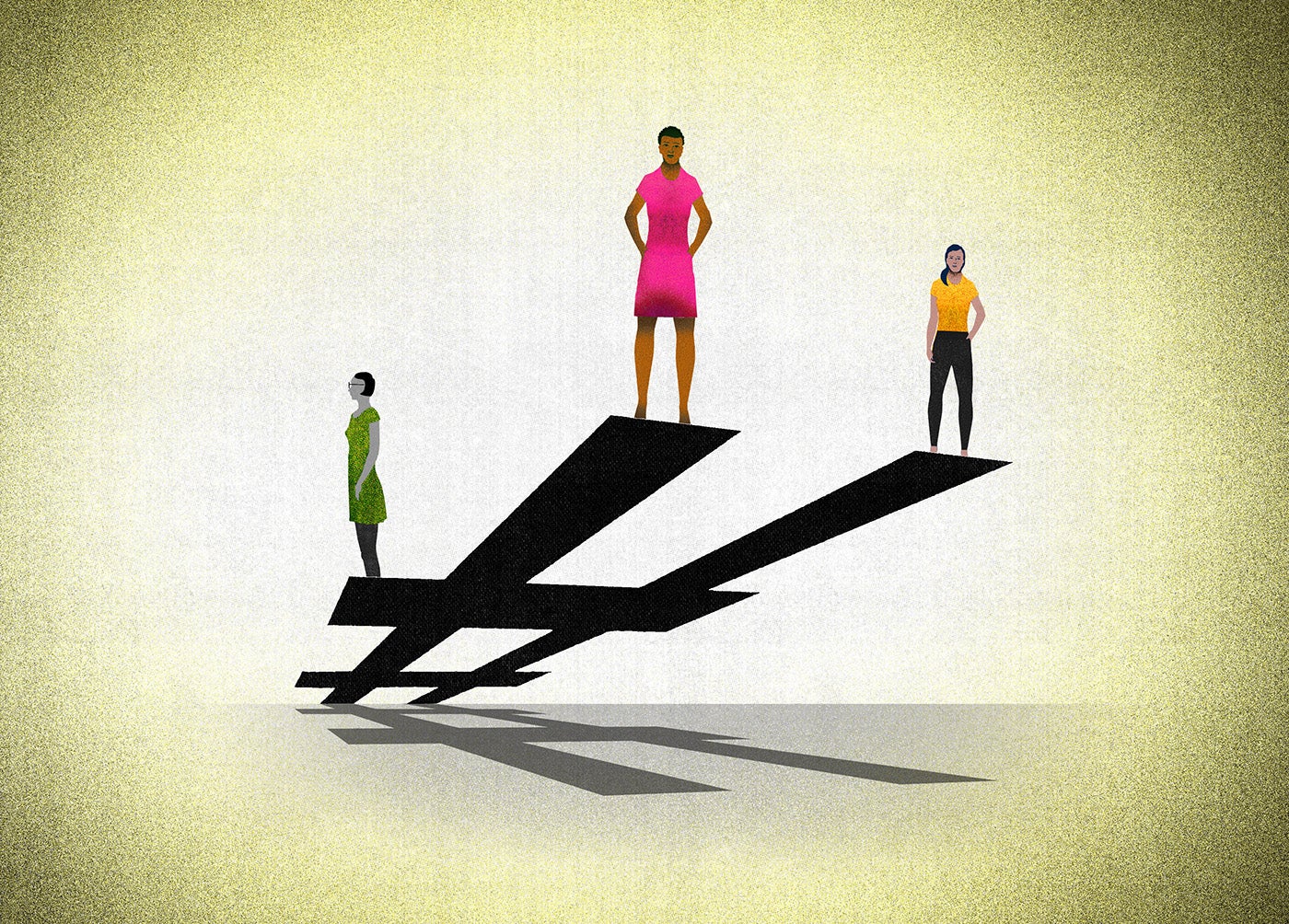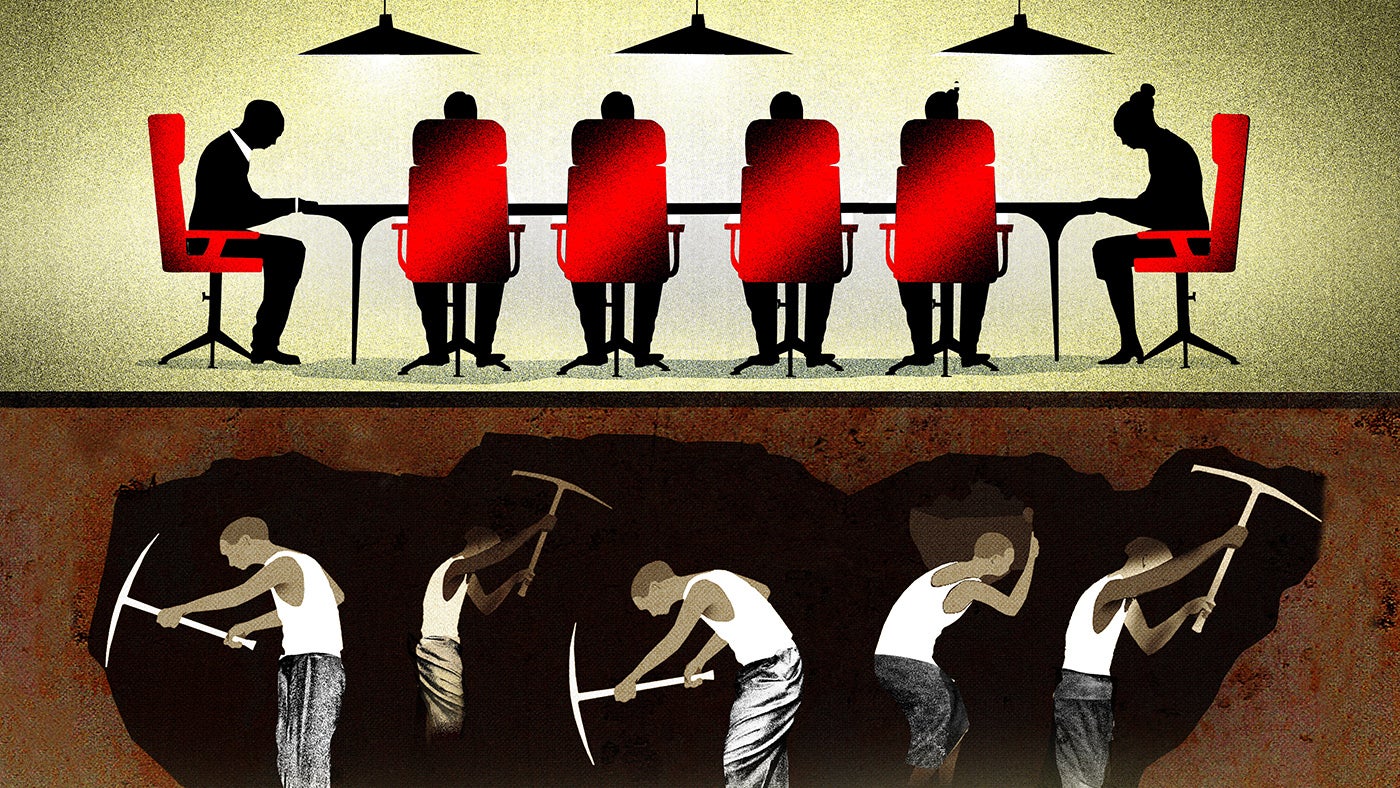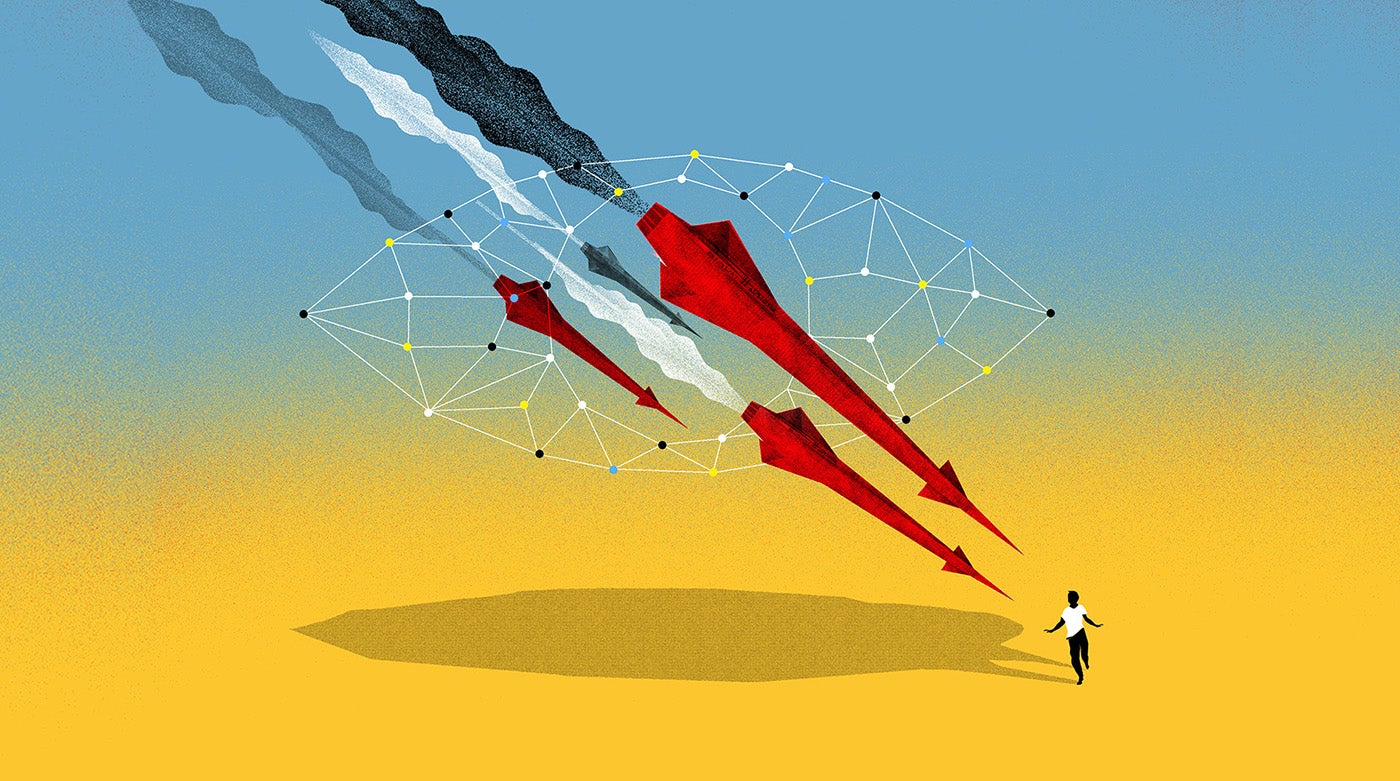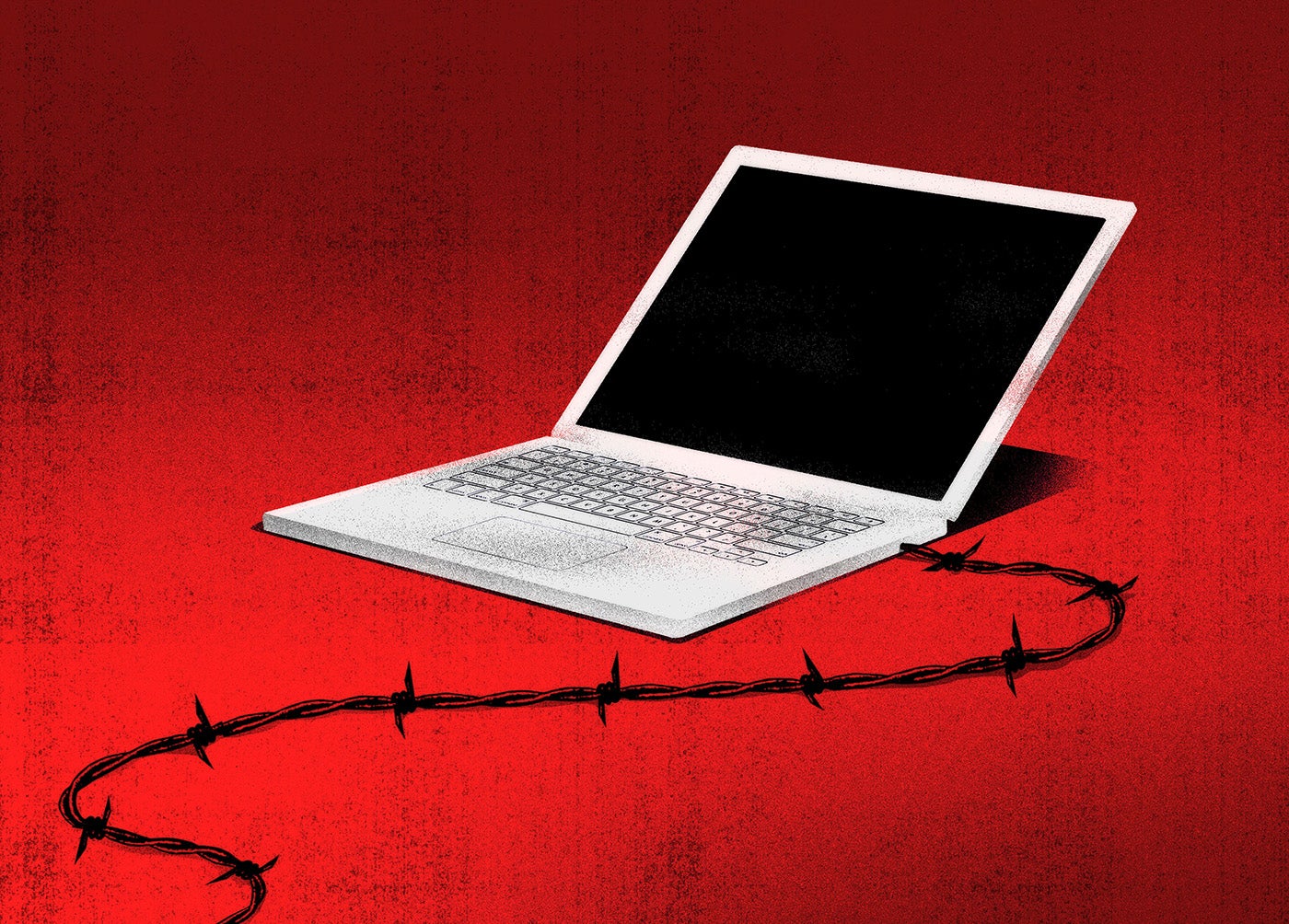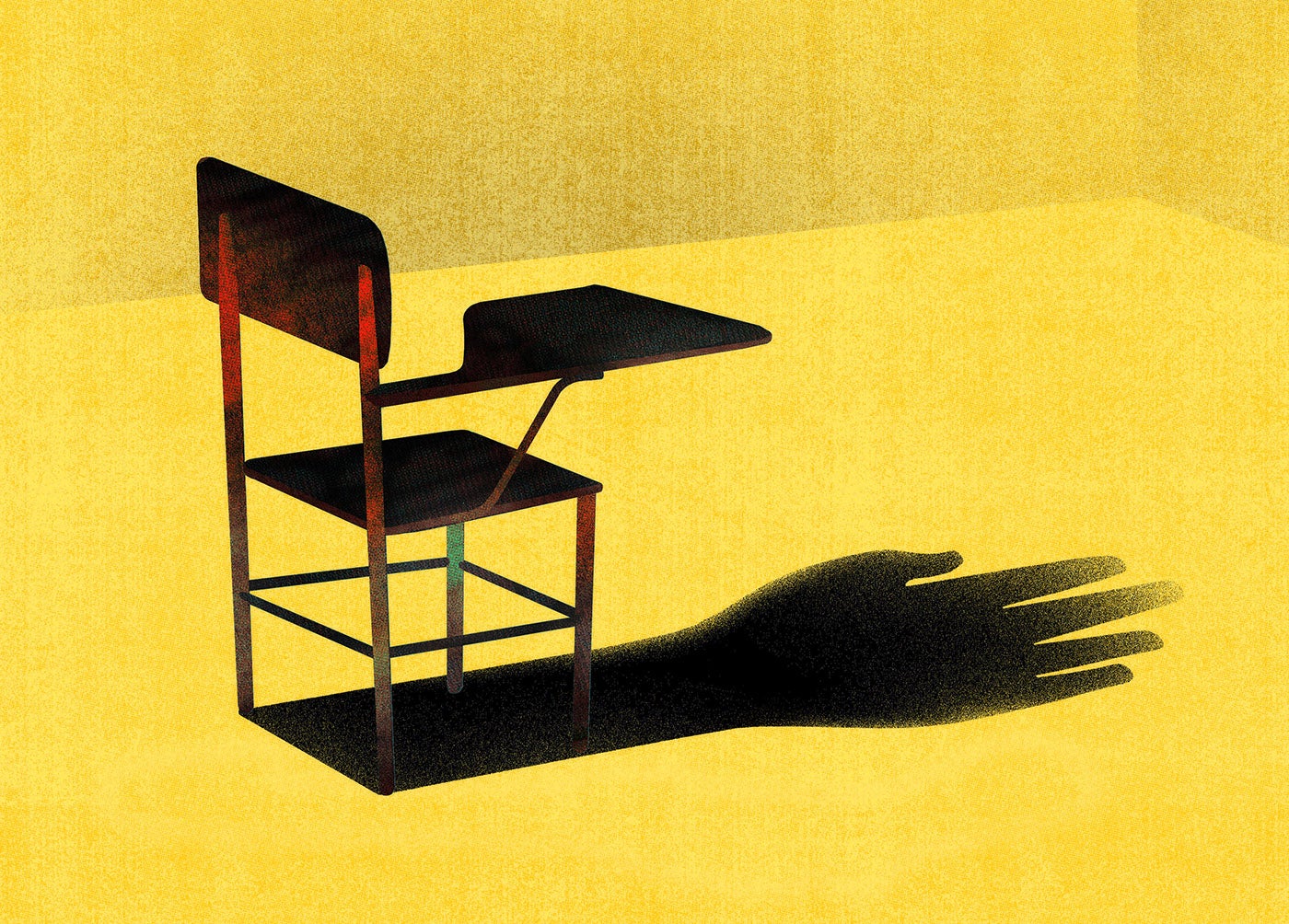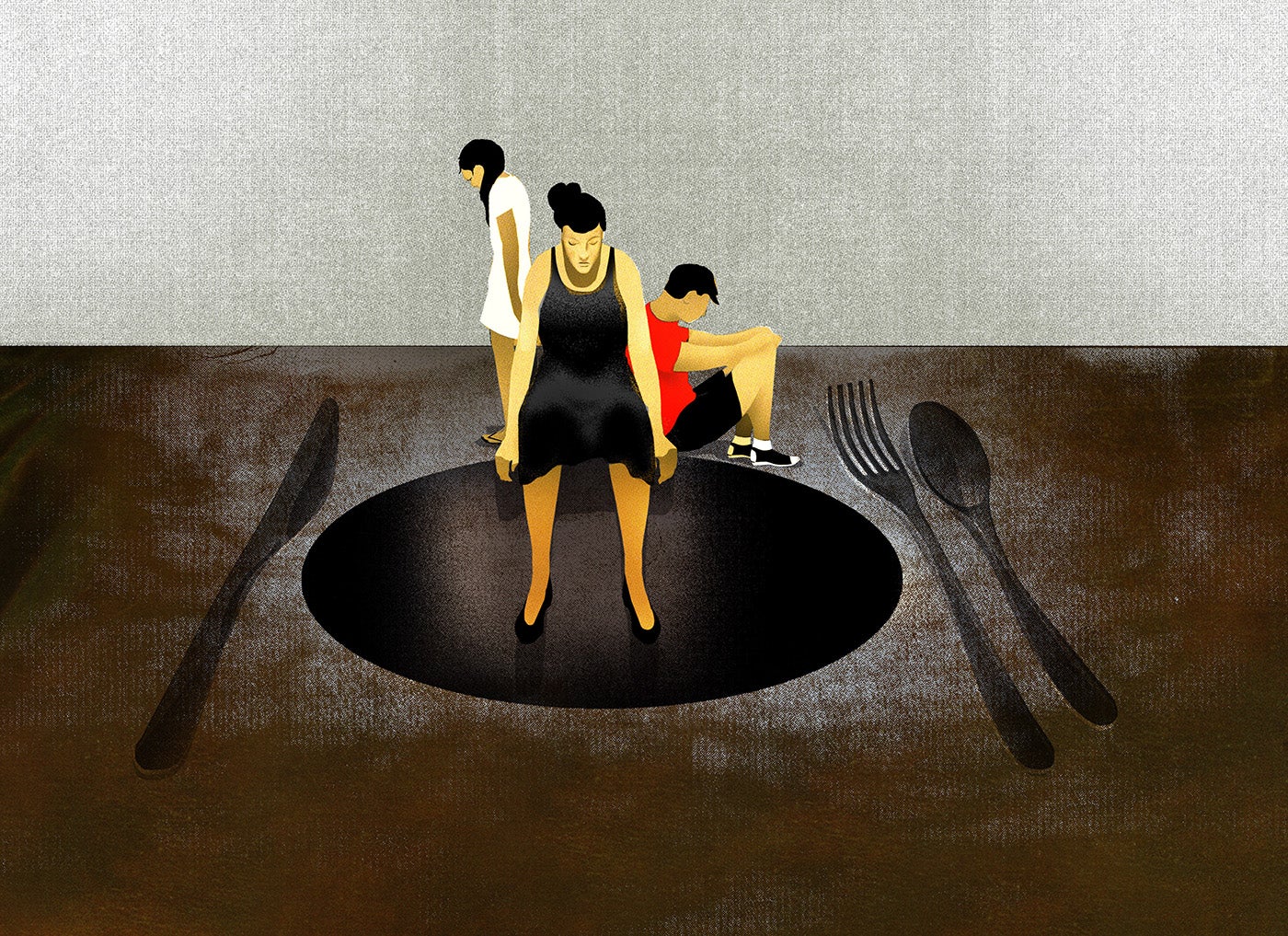The human rights situation in Russia continued to deteriorate in 2019. With few exceptions, authorities responded to rising civic activism with bans, repressive laws, and showcase prosecutions. Record numbers of people protested the groundless exclusion of opposition candidates from a local election in Moscow, and authorities responded with an overwhelming show of force, detentions, and rushed criminal prosecutions. The heightened repression spurred a widespread public “freedom for political prisoners” campaign, which led authorities to release several people from jail.
Officials’ disregard for public concerns about the environmental and health impacts of waste management projects sparked widespread protests, and the authorities routinely harassed and prosecuted environmental activists.
The government introduced new restrictions to online speech and adopted a law that could allow it to isolate the Russian segment of the internet.
The “foreign agents” law continued to suffocate nongovernmental organizations (NGOs), while authorities unleashed an intimidation campaign against individuals for allegedly defying the law banning “undesirable” foreign organizations.
Torture and Cruel and Degrading Treatment
Torture and other ill-treatment remained widespread; especially in pretrial detention and prisons. The trial continued against Yaroslavl prison staff arrested for beating an inmate in 2018. In August, authorities promised an investigation into reports that inmates are ill-treated to coerce confessions in designated cells in St. Petersburg’s pretrial jail. In September, a court delivered the first-ever verdict against a former Federal Security Service (FSB) officer for torturing a suspect.
However, authorities often deny that ill-treatment takes place and refuse to prosecute those responsible for it. Human rights defenders documented numerous cases of failure to ensure justice for survivors.
Election Protests
In mid-July, disqualification of viable opposition candidates—many of them allies of opposition politician Alexei Navalny—from the September Moscow City Council elections sparked sustained, unauthorized, but peaceful protests. Police used excessive force against peaceful protesters, dozens of whom sustained injuries, and arrested record numbers of demonstrators and random bystanders.
Apparently aiming to discourage further protests, authorities opened several major criminal investigations. By November, 23 people were arrested on unfounded charges of “mass rioting” and/or assaulting police. Five were sentenced, for assault, to two-to-three-and-a-half years in prison, one of whom was released in September, following a vigorous public campaign.
An appeals court issued him a one-year suspended sentence. Seven were released and their cases closed. Eleven remained in jail or under house arrest, including Yegor Zhukov, whose charges were changed to “inciting extremism online.” Aidar Gubaidulin was put on an international wanted list after he fled Russia, fearing imprisonment. One activist, Konstantin Kotov, received a four-year prison sentence merely for repeated participation in unsanctioned demonstrations. Courts issued warnings to two couples who brought their children to the protests, after the prosecutor’s office sought to have them stripped of their parental rights. One man received five years’ imprisonment for a tweet that was interpreted as threatening law enforcement officers’ children.
Authorities opened a criminal investigation into election interference targeting opposition figures excluded from the ballot, and unregistered independent candidates served consecutive temporary arrest sentences. Civil lawsuits seek to hold protest leaders responsible for alleged damages, for millions of rubles, related to unsanctioned protests. A money-laundering investigation opened in August targeted the Anti-Corruption Fund (FBK)—an organization led by Navalny. Nationwide raids of the organization’s premises and freezing of its activists’ bank accounts followed the September vote.
Police in Ulan-Ude used excessive force and carried out arbitrary detentions to break up peaceful, election-related protests triggered by, among other things, the victory of the ruling party’s mayoral candidate. Approximately 20 were detained; two were fined, two received short jail sentences, and the rest were released without charge. One of the protest leaders sustained a concussion and a fractured vertebra after police detention. Police opened a criminal investigation into assaulting a police officer for spraying pepper gas that the activists claimed the police used against them. In October, the activist was sentenced to a fine.
Freedom of Association
Authorities continued their large-scale smear campaign against NGOs.
A law adopted in October 2018 banned organizations designated as “foreign agents” from providing anti-corruption evaluations of draft legal acts.
Since December 2018, the Justice Ministry added 12 organizations to its list of “foreign agents,” including three human rights organizations, a group working on HIV/AIDS prevention, and FBK.
Authorities continued to fine organizations and their leaders for violating the “foreign agents” law, including failing to include “foreign agent” disclaimers on their social media posts and other publications. Fines and other pressures forced several more groups to close, including one that supported people with diabetes.
In November, the Supreme Court ruled to shut down Movement for Human Rights, one of the country’s oldest human rights groups.
Authorities launched the first-ever criminal investigations for involvement in “undesirable organizations,” targeting four activists of the pro-democracy Open Russia movement. In September, Yana Antonova’s case went to trial. Another activist, Anastasiya Shevchenko, remained under house arrest since January. Both face up to six years in prison, if convicted. Dozens of others were interrogated or fined, for actions ranging from social media posts about Open Russia to holding placards with the movement’s yellow and black colors.
In October, authorities conducted en masse house searches and blocked bank accounts of several activists they suspect of having ties with FBK.
In November, Russian authorities banned as undesirable the Czech humanitarian organization “People in Need.”
Freedom of Expression
In December 2018, President Vladimir Putin signed into law amendments decriminalizing first-time incitement to hatred offenses. Russian authorities often misuse incitement to hatred offences to stifle legitimate protected speech.
Russian authorities continued to use repressive legislation to stifle critical and independent voices online and offline.
In an emerging trend, authorities restricted artistic freedom by canceling numerous rap and pop music performances under the pretext of protecting children from the promotion of drugs, suicide, and homosexuality.
The government continued to curtail internet freedom. Google’s transparency report showed that the total volume of content that the Russian government has requested it to block on YouTube and its other platforms spiked in 2018.
In May, Putin signed a law enabling Russian authorities to partially or fully block access to the internet in Russia, without judicial oversight, in the event of as yet undefined security threats. The law, which partially came into force in November, and at time of writing was due fully in force in January 2021, envisages the creation of a national domain system, providing the government with centralized control of the country’s internet traffic that would enhance its capacity to conduct fine-grain censorship of internet traffic.
Courts issued crippling fines to NGOs and independent media. A massive fine in late 2018 against The New Times magazine, known for its critical coverage of government policies, was for alleged failure to report foreign funding. In October 2018, a court ordered Transparency International Russia to pay a million rubles (US$15,200) in libel damages to the co-manager of Putin’s 2018 electoral campaign. The same month, an NGO working on drug policy was fined for promoting drug use over an article on how certain drug users can reduce health risks. All three avoided closure by raising money for fines through crowdfunding.
Cases against at least 45 people were opened and courts already issued 23 fines for insulting the authorities, under a March 2019 law that bans dissemination of “fake news” or expressing “blatant disrespect” for the state.
In February, authorities opened a criminal terrorism propaganda investigation against a journalist, Svetlana Prokopyeva, for remarking in a broadcast about a suicide bombing that some government policies might be radicalizing youth. The news outlets that published her comment were also fined.
In May, two veteran reporters with Kommersant, a highly respected news outlet, were pressured into resigning in retaliation for a news story, prompting the entire politics desk to quit. Ivan Golunov, a journalist with the independent outlet Meduza was arrested on bogus drug charges because of his investigative work on high-level corruption. After massive local and international campaigns, authorities released Golunov, dropped the charges, and sacked two high-level police officials. An investigation is ongoing into the attempt to fabricate the case against Golunov.
In November, the Russian parliament passed a new bill enabling authorities to expand the status of “foreign agents” to private persons, including bloggers and independent journalists.
Freedom of Religion
Russian authorities continued to persecute minority religious groups groundlessly designated as “extremist” under Russia’s overly broad counter-extremism law despite no evidence that they espoused or committed violence.
In February, a court in Oryol sentenced Dennis Christensen, a Jehovah’s Witness and a Danish citizen, to six years’ imprisonment on extremism charges. In November, a court in Tomsk handed down the same sentence to another Jehovah’s Witness, Sergei Klimov. At least 285 Jehovah’s Witnesses have been convicted or were facing trial or under investigation in Russia in 2019. Forty-six are in pretrial custody.
Authorities prosecuted on extremism charges members of certain Islamic groups that have no history of incitement or violence. In October 2019, at least two followers of the late Turkish theologian Said Nursi, branded extremist and banned in 2008, continued to serve three-to-eight-year sentences. Four were released in 2019; one of them, Yevgeniy Kim, was stripped of his Russian citizenship after serving almost four years and remained in detention pending deportation since April 2019. Trials on extremism charges were pending against two others.
Human Rights Defenders
In March, a court in Chechnya sentenced Oyub Titiev, Grozny director of Human Rights Centre Memorial, to four years on bogus drug charges. In June, Titiev was paroled, after 17 months behind bars.
Several human rights lawyers and activists were targeted in Krasnodar region. Human rights lawyer Mikhail Benyash was sentenced to a fine for assaulting a police officer. The charges against Benyash were brought after he was arrested in 2018, held in incommunicado detention, and beaten. In November 2018, unknown perpetrators torched the car of Benyash’s lawyer, Lyudmila Aleksandrova, who also represents victims in cases against law enforcement agencies. In September, police in Sochi raided the home of human rights defender Semyon Simonov, breaking his door, and confiscating his and his wife’s electronics and documentation pertaining to his work.
In August, police and security services raided and searched the Moscow and Nazran offices of Russian Justice Initiative, an NGO that has won several hundred cases against Russia at the European Court of Human Rights. In Moscow, authorities did not show a search warrant. Authorities in Nazran said the search stemmed from an investigation into alleged foreign funding of unsanctioned protests.
2019 marked 10 years since the murder of Natalia Estemirova, a human rights defender in Chechnya. Russian authorities have not carried out an effective investigation.
Environmental Defenders
Throughout the year, people across Russia protested, trying to prevent the construction or expansion of landfills, waste incineration plants, and waste processing plants that they believed would jeopardize their rights to health and a healthy environment.
In Arkhangelsk region, private security guards used violence against protesters who seek to block the illegal construction, in swampy woodlands, of what would be the largest landfill in Europe. In March, police criminally charged three activists with vigilantism for trying to stop the actions of a private subcontractor who was using an excavator to threaten activists, injuring one. But authorities refused to prosecute the private actors responsible for this and private security, for violence against protesters.
Local authorities also harassed protest leaders and grassroots activists who objected to projects to “export” Moscow’s garbage to their regions. Two activists, Vyacheslav Yegorov in Kolomna, in Moscow region, and Andrey Borovikov in Arkhangelsk, were indicted for repeated violations of public assembly rules and may face up to five years in prison for peacefully protesting. Borovikov was sentenced to a fine. Yegorov’s trial was pending at time of writing. Authorities in Kolomna and Arkhangelsk repeatedly denied permits for peaceful protests in the center of these cities, relegating them to the outskirts.
In June, Alexandra Koroleva, leader of Ecodefense!, an environmental group, fled Russia after authorities opened five criminal cases against her in one day for failing to pay “foreign agent” fines, threatening her with imprisonment.
Another group, Environmental Watch for the Northern Caucasus and its head, Andrey Rudomakha, were targeted several times for associating with the Open Russia movement. In April, the organization was fined for posting blogs on Open Russia’s website. In April and July, police raided the group’s premises, and during the latter, they beat and pepper sprayed Rudomakha. Both times, police confiscated electronics and documentation, paralyzing the organization’s work.
In January, Greenpeace Russia learned that an investigation into the 2016 beatings of its staff was closed without anyone being held responsible. The investigation into the severe beating of Rudomakha in 2017 remained stalled. Both incidents took place in Krasnodar.
North Caucasus
In July, the independent newspaper Novaya Gazeta, Memorial and Committee Against Torture, two Russian prominent human rights groups published findings of their joint investigation of the extrajudicial execution of 27 Chechnya residents by local authorities in January 2017. There have been no effective investigations into the allegations.
Mass protests against the border demarcation between Ingushetia and Chechnya resumed in March. The protest was authorized on March 26, but the following day protesters were forcibly dispersed. Some physically resisted police. Thirty-three people, including the protest’s leaders, were arrested on charges of violence against police. In July, police arrested a former editor of Fortanga, an online media outlet, who had reported on the protests, on drug possession charges. The journalist alleged that security officials planted the drugs and tortured him to force a confession.
In June, authorities in Dagestan arrested Abdulmumin Gadzhiev on bogus terrorism charges in apparent retaliation for his journalism work for the independent newspaper Chernovik. If convicted, Gadzhiev could face up to 20 years’ imprisonment.
Sexual Orientation and Gender Identity
In December 2018 and January 2019, police in Chechnya carried out a new round of unlawful detentions, beatings, and humiliation of men they presumed to be gay or bisexual. No one was held accountable for this or for Chechnya’s 2017 anti-gay purge. Russian LGBT Network, an NGO, estimated that 20 men were held. All were believed to have been released. In May 2019, unknown individuals broke into the St. Petersburg apartment of a volunteer with the Russian LGBT Network and threatened her and the organization’s emergency program coordinator.
In June, a same-sex Russian couple with two adopted children had to flee the country after being targeted by authorities. Russian law bans adoptions for same-sex couples. Authorities charged the case workers assigned to the family with inadequate performance of duties, a criminal offense.
In November, authorities opened a criminal case into alleged sexual assault of children over a YouTube video of children talking to a gay man about his life.
Gender-Based Violence
Domestic violence remained pervasive but under-reported, and services for survivors inadequate. In July, Russia's ombudsperson publicly reiterated her support for a law on domestic violence. In October, parliament held its first preliminary debate on the bill.
In July, the European Court of Human Rights (ECtHR) issued its first ruling on a domestic violence case in Russia. The court ordered the authorities to pay the applicant 20,000 euros in damages and recognized the Russian authorities’ “reluctance to acknowledge” the gravity of domestic violence.
Racial Discrimination and Minority Rights
Police continued racially profiling people of non-Slavic appearance, often subjecting them to arbitrary detention, and extortion.
National censuses showed a continuing fall, in some cases drastic, in the number of speakers of minority languages. Council of Europe (CoE) experts on national minorities found that policies continue to reinforce dominance of Russian without effective support for minority languages.
In November, authorities ordered the closure of the Center for Assistance to Native Peoples of the North, on a bureaucratic pretext.
Russia and Ukraine (see also Ukraine chapter)
The Russian government continued to provide political and material support to armed groups in eastern Ukraine but took no measures to rein in their abuses, including arbitrary detention and ill-treatment of detainees. De facto authorities in Crimea continued to harass Crimean Tatars. Since 2015, Russian authorities have prosecuted at least 63 Crimean Tatars on trumped-up terrorism charges and handed down up to 17- year sentences.
In September, Russia released 35 people, including Crimean filmmaker Oleg Sentsov, who was serving 20 years on bogus terrorism charges, as part of a prisoner exchange with Ukraine.
Russia and Syria (see also Syria chapter)
Russia continued to play a key military role alongside the Syrian government in offensives on anti-government-held areas, participating in indiscriminate attacks hitting schools, hospitals, and civilian infrastructure.
Starting in April, the Syrian-Russian offensive to regain control of Idlib province, which included the use of internationally prohibited weapons, killed over one thousand civilians and displaced more than 600 thousand. Russia remains the biggest weapons supplier to the Syrian government.
Russia continued to use its diplomatic power at the UN Security Council and elsewhere to block accountability for Syrian crimes. Russian officials urged countries to launch reconstruction efforts in order to facilitate the return of refugees but failed to address key obstacles to return.
On September 19, Russia cast its 13th veto on Syria since the start of the conflict to block a Security Council resolution demanding a truce in the northwest because it did not include an exemption for military offensives against groups Russia and the Damascus government consider to be terrorist organizations.
Key International Actors
In January and February, the Council of Europe commissioner for human rights and the EU diplomatic service (EEAS) called on Russian authorities to investigate the persecution of LGBT people in Chechnya.
In June, the CoE Parliamentary Assembly (PACE) ratified the credentials of the Russian delegation, which fully resumed its work at PACE after losing its voting rights in 2014 over the occupation of Crimea. In return, PACE called on Russia to cooperate with the investigation into the downing of Malaysia Airlines flight MH17 in Ukraine and ending LGBT rights violations.
In July, the ECtHR found that Russia had to pay 42,500 euros in damages to three LGBT rights groups for refusing their registration.
In August, the ECtHR ruled against Russia over the 2009 death of Sergei Magnitsky in remand prison, finding, among other things, that Russia violated his right to life.
In July, the European Parliament adopted a resolution on Russia condemning persecution against environmental activists and the situation of Ukrainian political prisoners. The EEAS criticized Russia for the detention of protesters in Moscow, the detention of Ukrainian citizens, and abuses against Crimean Tatars.
At the March session of the UN Human Rights Council, the UK delivered a joint statement on behalf of more than 30 countries, condemning “renewed persecution of LGBTI persons in Chechnya.”
At his press conference with Putin before their August meeting, French President Emmanuel Macron said police use of force at the Moscow protests was not in line with international standards.
